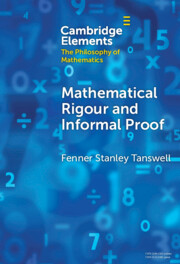This paper puts forward a new account of rigorous mathematical proof and its epistemology. One novel feature is a focus on how the skill of reading and writing valid proofs is learnt, as a way of understanding what validity itself amounts to. The account is used to address two current questions in the literature: that of how mathematicians are so good at resolving disputes about validity, and that of whether rigorous proofs are necessarily formalizable.
